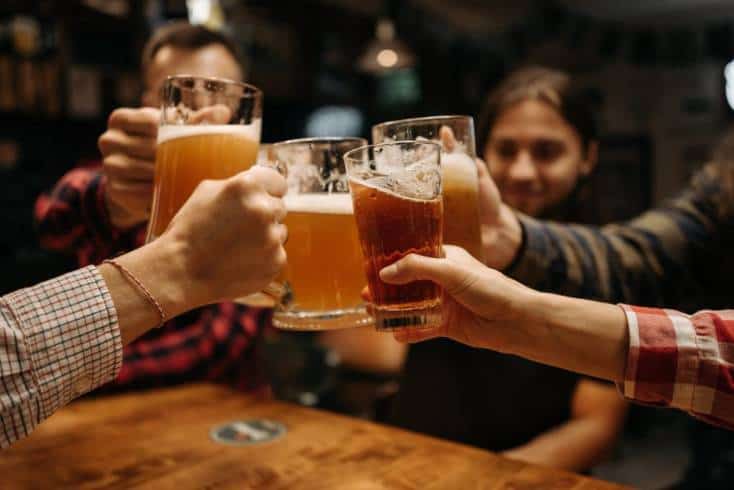
A recent study runs contrary to all the bad news we’ve been hearing lately, about how drinking beer isn’t good for you.
On January, 3, US Surgeon General Dr. Vivek Murthy shocked the beer biz with a series of recommendations to increase awareness of alcohol-related cancer cases and deaths, including updating warning labels on alcohol beverages.
According to Newsmax, the World Health Organization declared in 2023 that “when it comes to alcohol consumption, there is no safe amount that does not affect health,” noting that “over half of the 3 million annual deaths linked to alcohol are due to non-communicable chronic diseases, including cancer.”
So, yeah, that’s all concerning news for beer fans, as well as those of us who work in the industry.
But a new study, which was sponsored by the U.S Department of Agriculture’s Food and Nutrition Service, contradicts much of that recent research.
The end-of-year report released by the National Academies of Sciences, Engineering and Medicine (NASEM) refutes many recent studies, which have concluded that drinking alcoholic beverages have no health benefits and are linked to a higher risk for heart disease, cancer and other chronic conditions.
Dr. Ned Calonge, who helmed the report, analyzed the connection between alcohol consumption and eight specific health outcomes, and found “that that people who consumed moderate levels of alcohol had a 16% lower risk of all-cause mortality than those who never drank.”
His 14 person committee combed through several prior studies using a scale of low to high uncertainty, based on the consistency of the evidence and found many of those studies’ results unconvincing. Throughout its review of current literature, the committee identified a consistent set of research gaps that, if addressed, could strengthen the existing evidence on moderate alcohol consumption and health outcomes.
“The evidence base from which to draw conclusions about alcohol and health is imperfect, and conducting the research has many challenges — such as a lack of standardization for terms like ‘non-drinker’ or ‘moderate drinker’ and the possibility that people are underreporting their own alcohol consumption,” added Calonge.
And although other reports might refute this study in the future, a little “good beer news” is welcome from time to time.
###
 American Craft Beer The Best Craft Beer, Breweries, Bars, Brewpubs, Beer Stores, And Restaurants Serving Serious Beer.
American Craft Beer The Best Craft Beer, Breweries, Bars, Brewpubs, Beer Stores, And Restaurants Serving Serious Beer.
